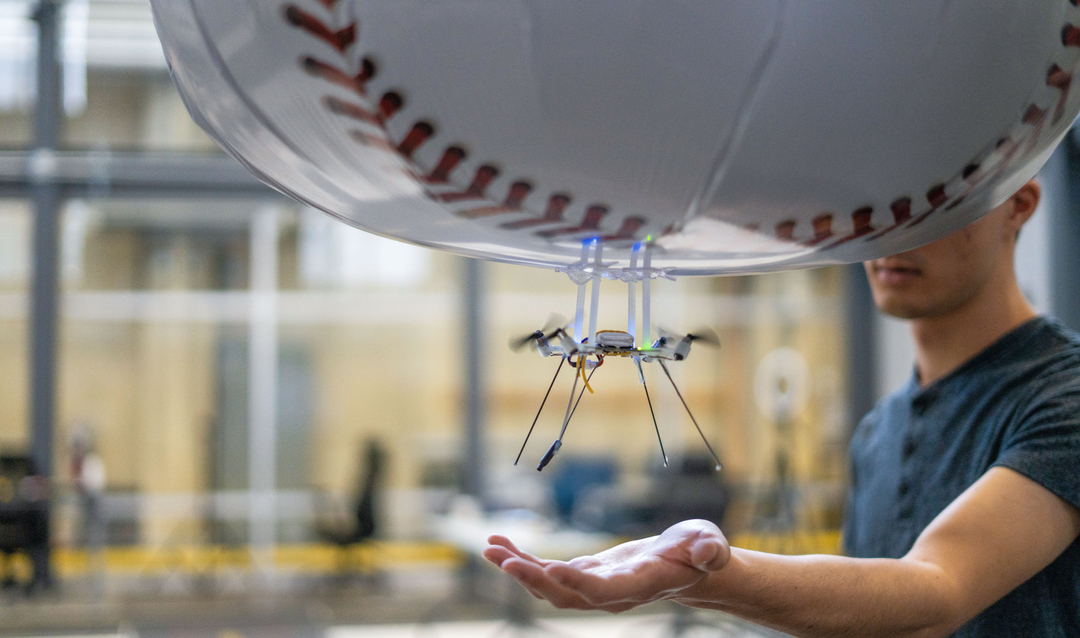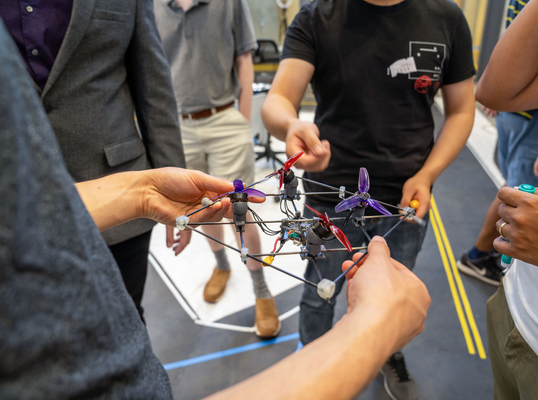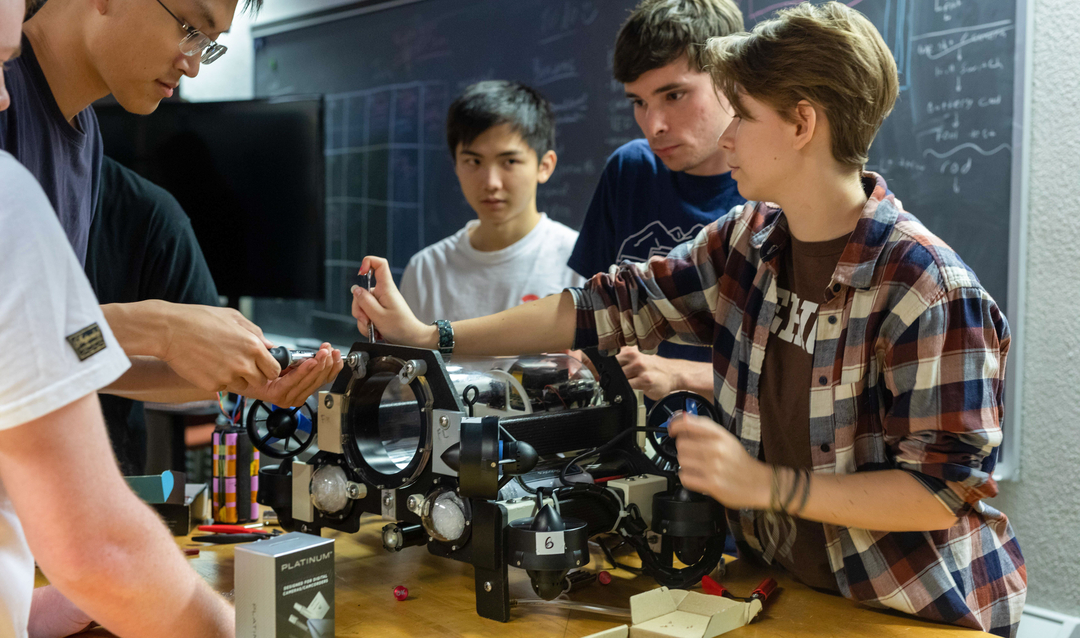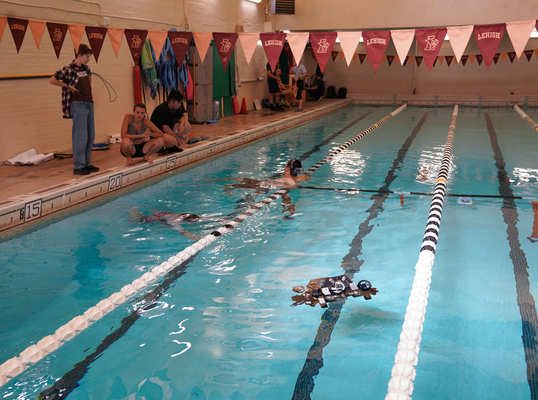Picture this: A hurricane rages in a remote part of the world, with winds possibly exceeding 150 miles per hour and rainfall sometimes totaling more than a foot. With limited road access, hospitals can’t get needed medical supplies. Traditional drones aren’t performing well in the severe weather.
The possibility of such a scenario prompted a group of students in Lehigh’s Mountaintop Summer Experience to spend this summer figuring out whether a swarm of flying blimps could be used to transport supplies in less than ideal weather conditions.
The project, Flying Swarms: Designing, Constructing, and Programming Autonomous Robotic Blimps, is one of 36 “distinct, innovation-driven” projects in the 10-week initiative, which included 180 students and 25 faculty members. Of those 36 projects, 18 are part of a Creative Inquiry Impact Fellowship program. Now in its 10th year, the Mountaintop Summer Experience has grown dramatically since its inception and, spurred by the creation of the Office of Creative Inquiry, began transitioning the summer projects into year-round ventures that accelerate in the summer six years ago.
“The summer at Mountaintop is one phase in a longer life-cycle of these projects that will all continue into the Fall semester and beyond,” Bill Whitney, administrative director for the Office of Creative Inquiry, said. “After this accelerated time, the teams may shift but the projects will continue to spin out innovative and impactful outcomes.”








